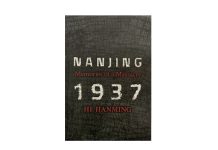From Benoit Vermander
The year 2024, which marks the 60th anniversary of the establishment of diplomatic relations between China and France, has been designated the “Franco-Chinese Year of Cultural Tourism”. During the months to come, many events will be held both in China and in France, with some of them already taking place.
For instance, the Harbin Ice and Snow Sculpture Festival harbors sculptures of Notre-Dame de Paris and of the Temple of Heaven. Also, Charles Gounod’s opera, Roméo et Juliette, will be performed in Beijing, a Château de Versailles exhibition will be held at the Palace Museum (Forbidden City), and Les Misérables and Les Fourberies de Scapin are also on the program. Several major art exhibits, such as the one of Annette Messager at Shanghai’s Power Station of Art, too are on the list.
Both sides have been making efforts to organize gala programs. Most importantly, and going beyond holding one-time events, China will continue to promote the translation and publication of the works of Chinese academics and writers in the French language, an effort that it has sustained for a number of years now.
These translated works have introduced the French-speaking public to such major works as Eastern and Western Cultures and their Philosophies, by Liang Shuming, A Sociological Study of the Chinese Family System by Lin Yaohua and From the Soil, an epoch-making study by celebrated anthropologist Fei Xiaotong (a biography of whom has also been translated and published).
Interestingly, reputable French academic publishing houses such as Presses de l’Inalco, L’Harmattan and Honoré Champion have participated in this endeavor of cross-cultural communication. China is to be commended for continuously improving the quality and number of these translations, making considerable effort to introduce modern and contemporary Chinese works to a larger international public. This state-led effort slightly corrects the large unbalance in the number of acquisitions: Chinese publishing companies translate many more books from the French language than their French counterparts do from the Chinese.
For sure, translated works of French social scientists or even philosophers may not be as numerous as was the case in the past (the French influence in these fields is not as dominant as was the case a few decades ago), but some sectors have shown a remarkable resilience. Among them, poetry probably comes first: the works of René Char, Yves Bonnefoy, Jean-Pierre Siméon, Yvon Le Men and Serge Pey have met with remarkable success in China. This is largely due to the untiring efforts of some remarkable Chinese translators, such as Shu Cai, a leading actor in the exchange. Regular manifestations, notably the one called The Spring of the Poets (Le Printemps des Poètes), also contribute to making Sino-French poetic exchanges a field of lively interactions and cross-cultural fertilization.
These achievements are rooted in a reciprocal cultural fascination that goes back to the time of Emperor Kangxi of the Qing Dynasty (1644-1911) and Louis XIV, whose reigns witnessed the first organized intellectual and scientific exchanges between the two countries (five “King’s Mathematicians” sent by Louis XIV reached Beijing in 1688). But these achievements should not lead to complacency. New challenges need to be tackled. The French people’s appreciation of Chinese cultural vitality has reached a plateau, with a certain weariness appearing when it comes to traditional arts and crafts as there is little knowledge among today’s French people of the most contemporary artistic and literary expressions. New forums need to be developed, and efforts made for encouraging translations and adaptations of Chinese contemporary literary works in the French language and exhibition of contemporary artists’ creation in France. As a matter of fact, the French Embassy in Beijing organizes the “Fu Lei Translation and Publication Prize” every year to reward Chinese translations from French on the Chinese mainland, an initiative started in 2009. But there is no similar award for encouraging the French translators and other bridge-builders who strive to popularize Chinese productions on foreign soils.
Second, even if national cultural entities play a crucial role, cultural exchanges need to be fostered by companies and individuals. In fact, accrued efforts are already perceptible. For instance, the Fosun conglomerate supports the large Lantern Festival held in Paris, and the Shanghai-based fashion brand ICICLE organizes eight exhibitions of contemporary art between the two countries. –The Daily Mail-China Daily News exchange item





